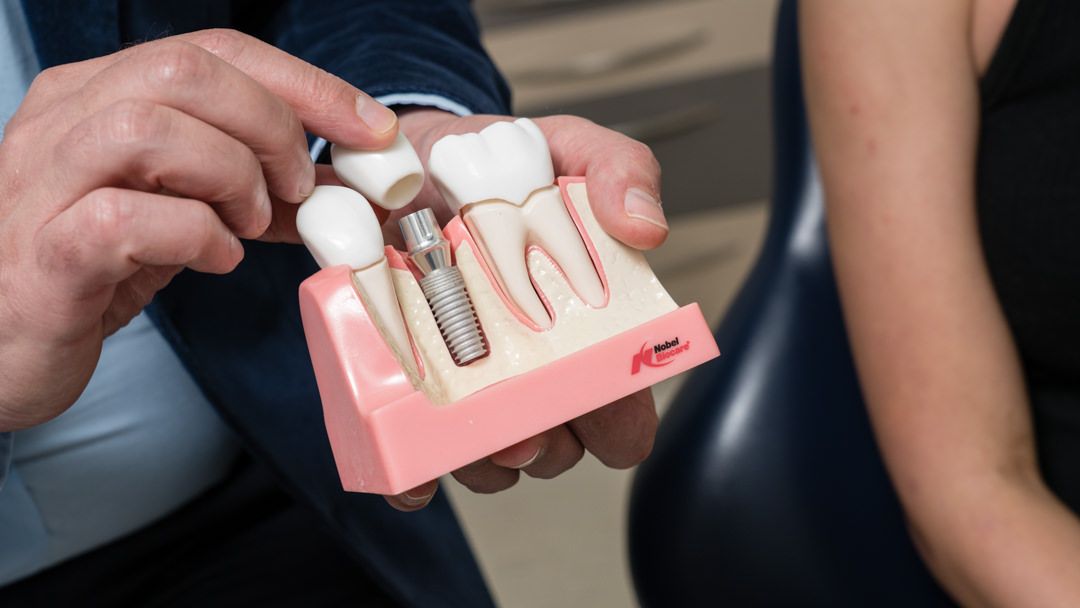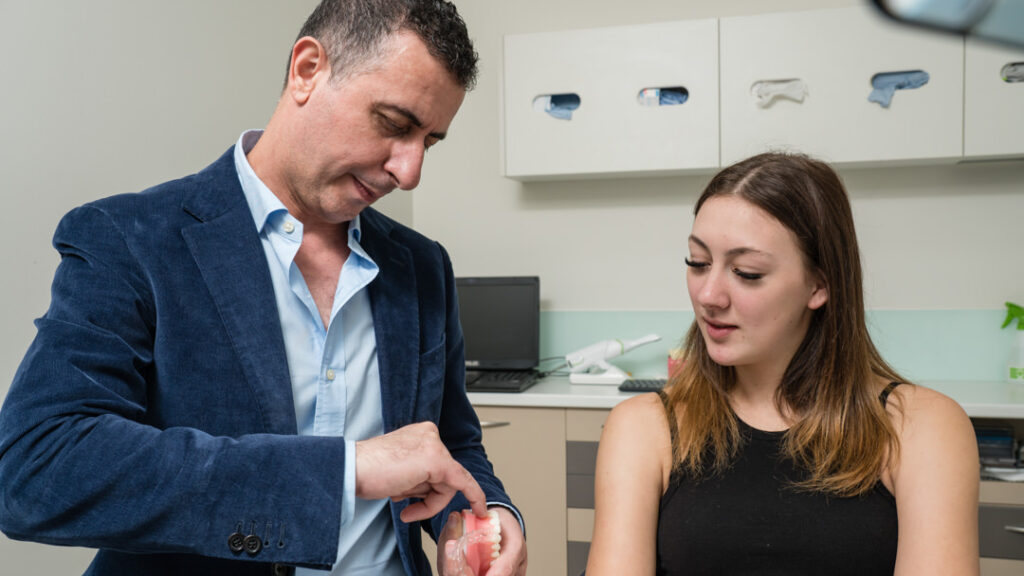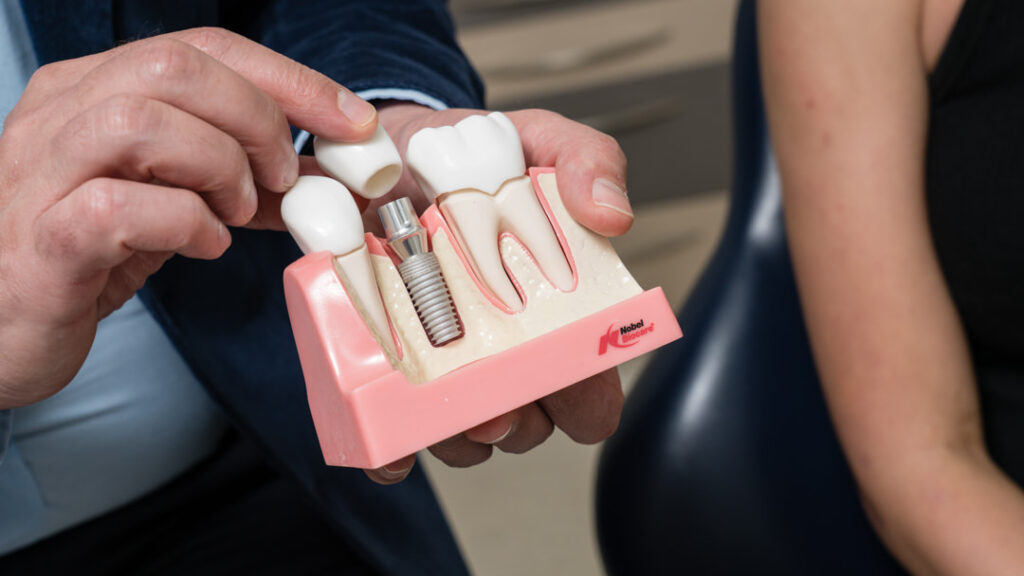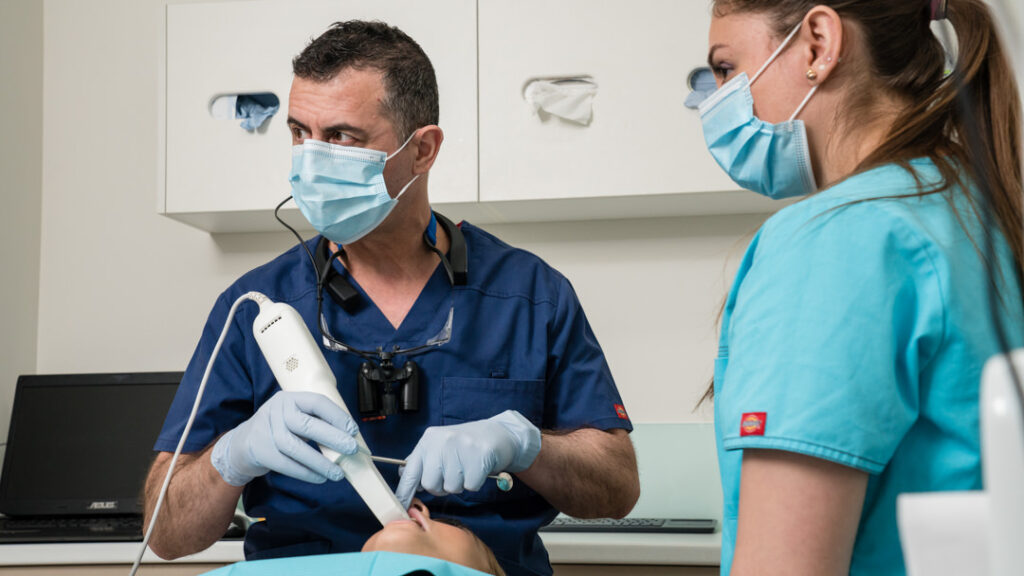
Dental Implants: What You Need to Know
No need to avoid smiling because of missing teeth. You can get your confidence back by replacing the teeth with dental implants. This procedure allows you to replace any missing teeth and the implant will appear like a natural tooth. Dental implants can replace teeth that are lost to injury, disease, or decay. The implant itself is like a screw that’s inserted surgically into the jawbone where the tooth’s root would be. A dental crown is then placed over it so it looks like a natural tooth.
For many, dental procedures can be frightening, but there is no need to worry. Dental implants are safe and effective. But learning more about the procedure can reduce some worry. Here’s what you should know about dental implants.
Are You a Good Candidate for Dental Implants?
Dental implants can replace teeth that have been lost to injury or disease. But this isn’t the only stipulation to receive the procedure. A good candidate for dental implants also must have good oral health and hygiene. Because the implant is placed in the jaw, a patient must also have a good bone density. You should also have healthy gum tissue and not have periodontal disease. These requirements ensure that your dental implant will last for years to come and not cause any potential problems.
There Are Different Types of Dental Implants
There are two types of dental implants: endosteal and subperiosteal. Endosteal is more common and involves anchoring the implant into the jawbone. This makes the implant act like a tooth root. Endosteal is often preferred because it helps prevent bone loss and teeth shifting. Subperiosteal are not anchored into the jawbone but rather sit under the gum. For patients who do not have a healthy jawbone, this may be the solution. Although, you can go through bone augmentation to help strengthen the bone and receive an endosteal dental implant.
Along with two types of dental implants, there are also two types of procedures: single-stage and two-stage.
- Single-stage procedures are quicker and involve placing a long implant where the top is exposed. After healing, a crown is placed on the exposed implant to create the look of the tooth. This procedure is used mostly on patients with bone issues.
- Two-stage procedures require at least two surgeries and a healing period between them. The first surgery includes placing the base of the implant into the jawbone. After healing, the second surgery adds a connector to the base and a crown on top. Two-stage procedures are more invasive, but they have more long-term benefits. The base of the implant will fuse to the jawbone, creating a strong fusion that mimics a real tooth’s root.
Dental Implant Procedures
Before having your dental implant surgery, you’ll have an initial evaluation by the surgeon. They will do x-rays and impressions to look at the condition of your jawbone. If you have any tooth, the surgeon will extract it. They will preserve the bone through a process called grafting before inserting the implant. You’ll be put on anesthesia, so you will not feel this procedure. Then the piece that attaches to the base is affixed and the crown is attached to the implant after the gums have healed.
Pre Care and Post Care
Before getting dental implant surgery, you will have to stop drinking alcohol and using tobacco for at least two weeks before the surgery. Practice good oral hygiene and tell your dentist about any medications, as there could be side effects or complications. Make arrangements to be taken to and from the dental clinic, as it may not be safe for you to drive after the procedure. You should also plan to have a recovery period to rest and heal.
After the procedure, you can manage pain with over-the-counter painkillers. Using ice can help reduce swelling in the face or jaw. Your dentist may prescribe antibiotics to prevent infection. Be sure to take these as directed for the full duration.
Avoid hot drinks, spicy foods, and hard foods, as they can hinder healing. Soft foods are the best option, but be careful not to disrupt the area where you had surgery. You’ll also want to take caution when brushing or cleaning your teeth.
Don’t engage in strenuous activities and avoid smoking for at least two weeks. You may want to use a bite guard to protect the implant site. And be sure to see your dentist for follow-ups to ensure the wound is healing properly.
Dental implant surgery is safe and the success rate is high. However, there are risks associated with any kind of surgery. Though rare, you may experience some complications.
Potential Complications
During the healing process, implants may become loose. In this case, your dentist will have to remove the implant, let the bone heal, and try the procedure again.
Peri-implantitis is a disease that can cause bone loss around the implant. Again, a dentist will remove this and you may have to receive a bone graft. There may be nerve or tissue damage, or your body may reject the implant as a foreign body.
Some may also experience allergic reactions, though this can be avoided with MELISA testing before the surgery. Implants may also fracture, which will require removal and an alternative solution to missing teeth.
Feel Confident With Your Smile. Contact us today at our Woollahra or Ramsgate Location!
Whether you’ve lost a tooth because of tooth decay or injury, you don’t have to live with the gap. If you haven’t been loving your smile or want to protect your dental health, dental implants can be a great option. Dental implant surgery has been around for decades and is perfectly safe when done by a knowledgeable dental surgeon. A professional cosmetic dentist can speak with you about your options and answer any questions you may have.
Be confident with your smile and improve your oral health. Call today to schedule a Free Smile Assessment & Consultation appointment with one Dr. Rammo today.



